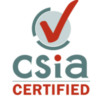Digital Factory Is Key To Increasing Manufacturing Capacity Say Industrial Automation North America 2016 Exhibitors
(Hannover, Germany and Chicago, IL) To help manufacturers reap the benefits of the digital factory, companies exhibiting at Industrial Automation North America 2016 (IANA) emphasize the need for smart, transportable data and connections to the plant floor. These digital factory topics and more will be a focal point at the upcoming show, co-located at IMTS from September 12–17, 2016, at McCormick Place in Chicago.
Digital Factory—Key to U.S. Manufacturing Expansion
Advancements toward a digital factory continue rapid development, making it a cornerstone topic at IANA as well as April’s HANNOVER MESSE 2016, the world’s largest manufacturing trade fair where the U.S. was selected as this year’s partner country. Exhibitors describe its impact as huge for the U.S.
“As we move forward to a digital connected factory, we will increase our manufacturing capacity in the U.S.,” said Will Sobel, chief strategy officer and founder for System Insights, Inc. “For the defense industry, it means surge capacity and sustainment. For the private sector, it means more products and faster time to market.”
“The digital factory offers opportunities for manufacturers to see the big picture, correlate data between the shop floor and overall enterprise planning and create a truly proactive factory,” said Mohamed Abuali, chief operating officer, Forcam.
But for digital factories to reach their potential, manufacturers need to place special emphasis on more sophisticated, connected data and the plant floor.
Data That’s Smart and Moveable
An effective digital factory goes beyond tracking and connecting data. The real value occurs through the transformation of data into intelligence that can be moved into ERP dashboards.
“The digital factory is about much more than connecting data. It’s helping companies create smart data from the plant floor that they can actually use to drive meaningful results,” said Abuali.
“As the boundaries between plant floor devices are being knocked down, critical operational data can now flow instantly to the real-time dashboards that management needs to effectively run factories and process plants,” said Dave Fortin, president, DataRealm.
Moving that data requires digital processes and standards for information exchange. “You need workable digital documents to transport from shop to shop and provide enough information to correctly manufacture and verify the part,” said Sobel.
“Documents must be created using standards for open interoperability between systems to help designers and engineers understand complexity, cost, tooling and strategy choices.”
Transportable data also enables integration with the heart of a manufacturing company—the plant floor.
Connecting to the Plant Floor
For a manufacturer to experience the full benefits of the digital factory, uncovering and using plant floor data is essential. “We are often called on to use our engineering expertise to help customers enhance both their production line capabilities as well as to increase the data extracted from their production lines,” said Fortin.
“Generally, the goal is to make plants more transparent and to provide management with comprehensive production reporting information.”
“How technology is employed and used to connect to the plant floor is extremely important,” said Abuali.
“Manufacturers should look for fully web-based solutions that work on any browser, smart device and in any language so that technology can be integrated to any machine. That creates truly predictive maintenance, answering ‘how do I know it’s going to fail?’”
Predictive, Strategic Means Goodbye Paper
For many manufacturers, the creation of a high impact digital factory means replacing traditional paper with the latest technology.
“We need to have digital assets throughout the process,” said Sobel. “Looking out 10-20 years, we don’t want to be in a paper-based world where lead times and processes are inflexible because of systems designed around paper-based assets with penciled instructions.”
“The movement to more versatile, user-friendly technologies is really expanding the ability to collect and analyze data and thus further open up opportunity to visualize and optimize production (delete can be optimized in a digital factory),” summarized Fortin.
For more information, visit http://industrialtechnology.events/.
About Industrial Technology Events North America
Industrial Automation North America, MDA North America, ComVac North America, Industrial Supply North America, and Surface Technology North America are organized by Deutsche Messe’s U.S. subsidiary, Hannover Fairs USA, Inc.. The five events run parallel to IMTS 2016 and belong to Deutsche Messe’s HANNOVER MESSE Worldwide portfolio.
About Deutsche Messe AG
From its headquarters in Hannover, Germany, Deutsche Messe AG plans and stages leading capital goods trade fairs around the globe. The company ranks among the five biggest tradeshow organizers in Germany, with projected revenue of 335 million euros in 2015. The company’s event portfolio includes such world-leading events as CeBIT (digital business), HANNOVER MESSE (industrial technology), BIOTECHNICA/LABVOLUTION (biotechnology and lab technology), CeMAT (intralogistics and supply chain management), didacta (education), DOMOTEX (carpets and floor coverings), INTERSCHUTZ (fire prevention, disaster relief, rescue, safety and security), and LIGNA (woodworking, wood processing, forestry). With approx. 1,200 employees and a network of 66 representatives, subsidiaries and branch offices, Deutsche Messe is present in more than 100 countries worldwide.
About Hannover Fairs USA
Hannover Fairs USA (HFUSA) develops and manages marketing programs at Deutsche Messe events in Hannover, Germany and the United States, as well as in such key emerging markets as China, India and Turkey. Working closely with its clients, Hannover Fairs helps them maintain their competitive position on and off the event floor. The company’s programs reflect the global scope of Deutsche Messe’s activities.







